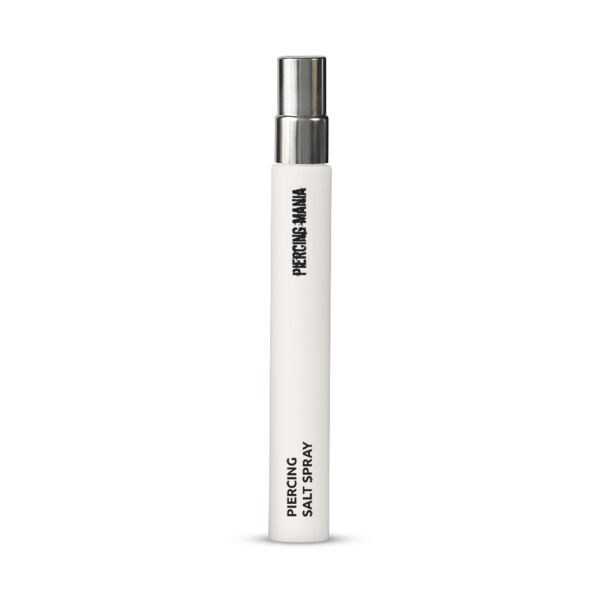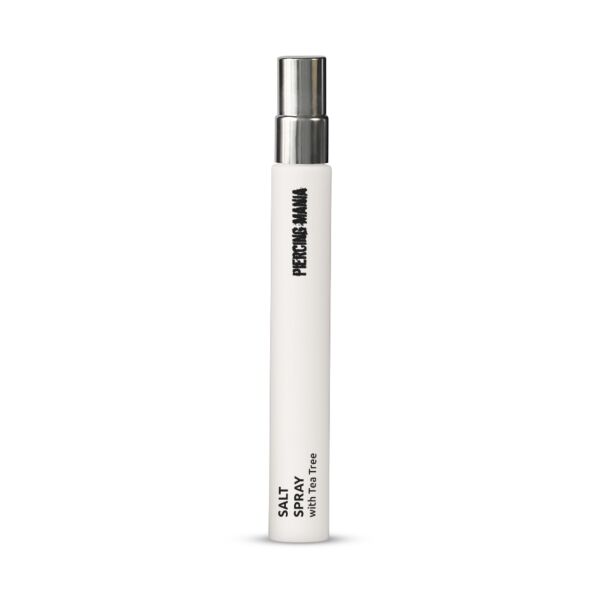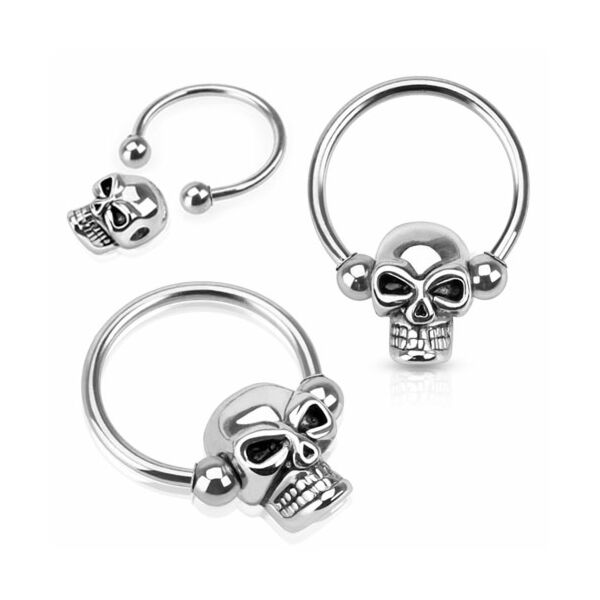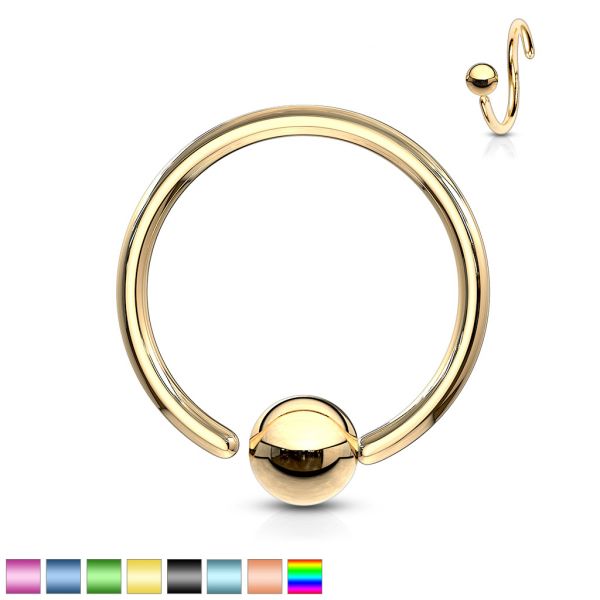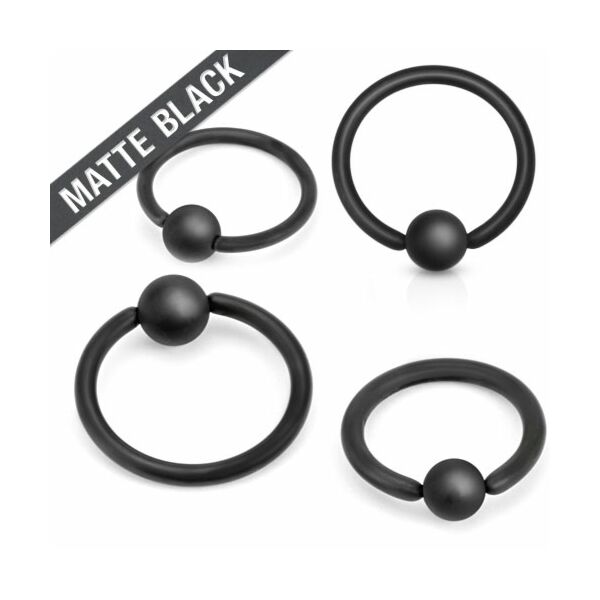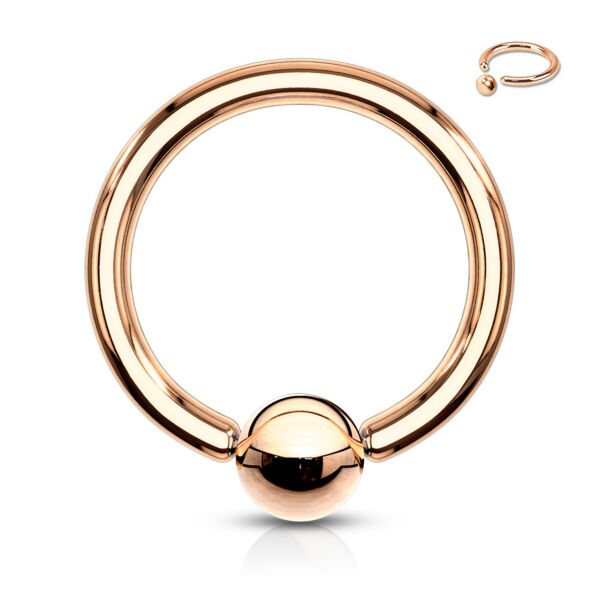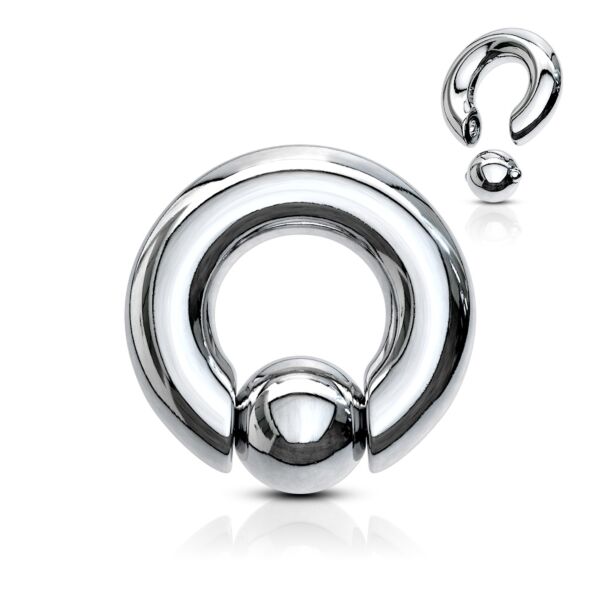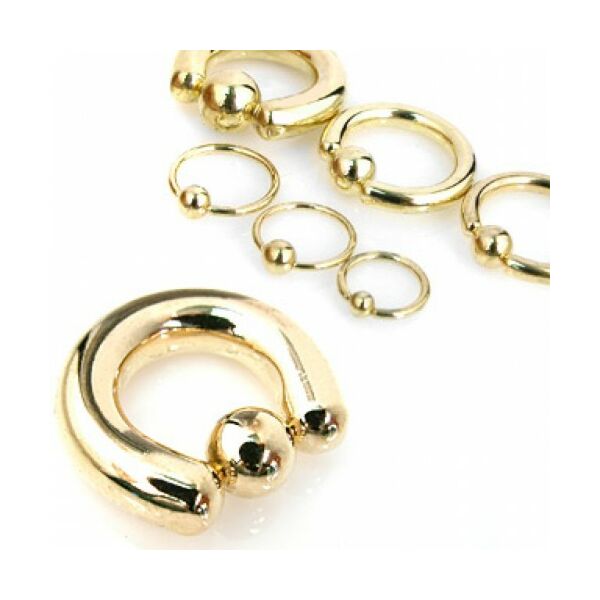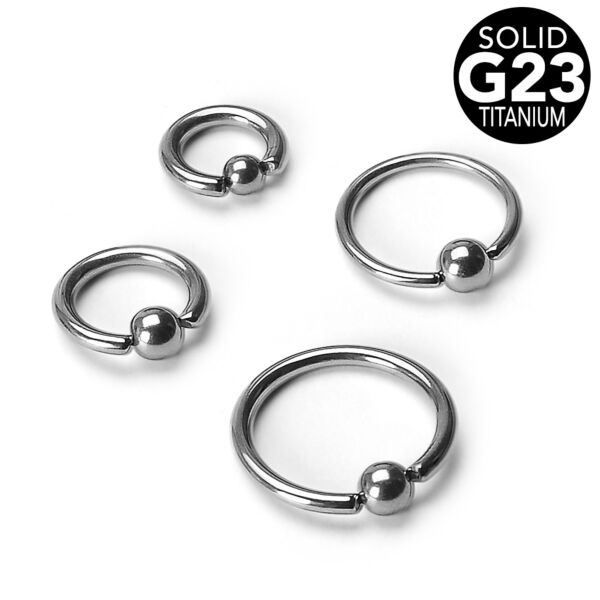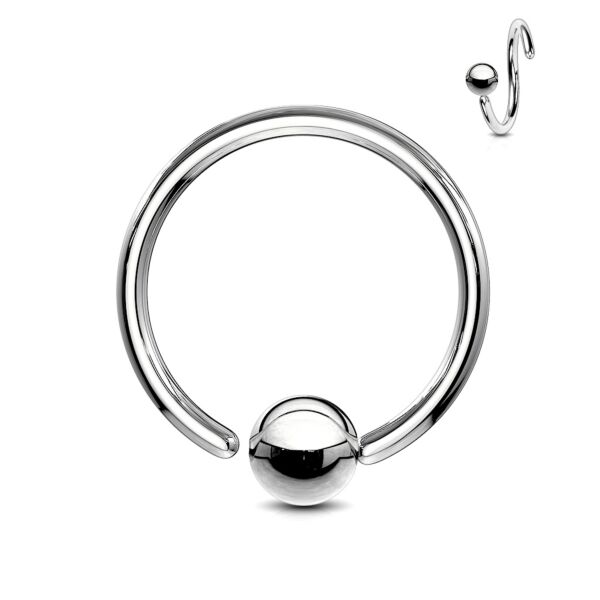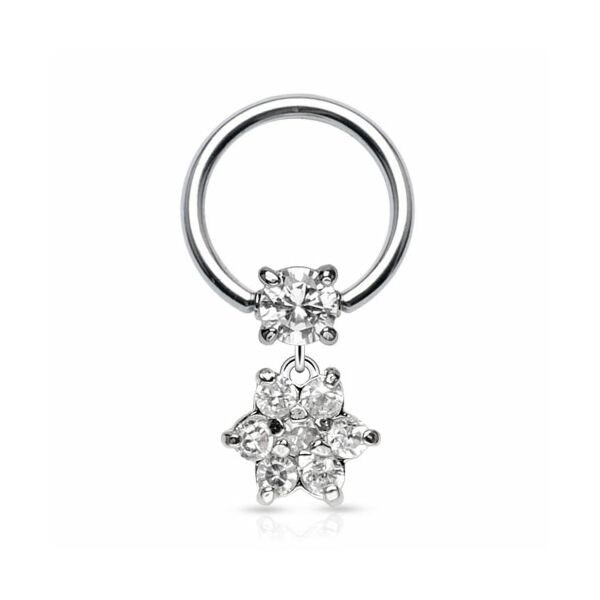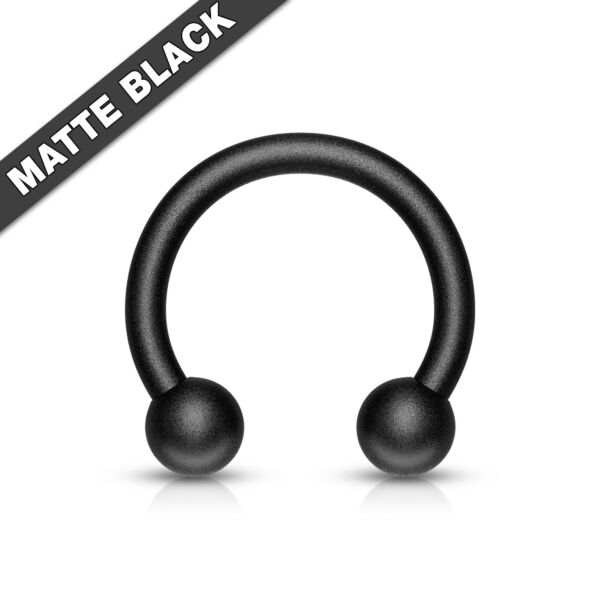Piercing Rings
Piercing Rings Shopping Guide
Piercing rings are one of the most versatile piercing types. There are several different kinds of piercing rings available, so there is something for everyone.
Some piercing rings need special forceps to open and close properly. You can find more information about this as well as other useful information in this shopping guide.
Jump to:
Piercing Ring Sizes
Piercing rings are often available in several thicknesses and diameters, and they are suitable for many different piercing types. The thickness and diameter needed for your specific piercing can vary from the standard sizes. The illustration shows how a piercing ring is measured.

Below is an overview of the standard or most common sizes for six popular piercing types, but the size you need can differ from the most common sizes.
We recommend measuring your current piercing to make sure you choose the right sizes for your piercing.

Piercing rings are perfect for cartilage piercings. Check out the cartilage jewelry shopping guide for the most common sizes.
Most Common Sizes
Thickness 1.2 mm
Diameter 6 - 8 mm

Piercing rings are a great choice for a nose piercing. You can find traditional nose rings in the nose piercings category.
Standard Sizes
Thickness 0.8 mm
Diameter 8 mm

Besides the special septum clicker rings, all other available piercing ring types can be used for the septum piercing.
Standard Sizes
Thickness 1.2 mm
Diameter 8 mm

Piercing rings are a great alternative to a curved barbell. There are many different ring types you could use.
Most Common Sizes
Thickness 1.2 mm
Diameter 8 - 10 mm

Although less commonly used than traditional belly button jewelry, piercing rings can also be used for the belly button.
Standard Sizes
Thickness 1.6 mm
Diameter 10 mm

Nipple rings are a nice change from the standard barbells. The diameter needed can vary between individuals.
Most Common Sizes
Thickness 1.6 mm
Diameter 10 - 19 mm

Special Forceps for Piercing Rings
Some piercing rings require special forceps to open and close the ring. You can also see this on the product pages of these rings.
The forceps have notches on the inside and outside to help with easily opening and closing the ring. You can find detailed instructions on how to use them on the product page of the forceps.

Piercing Ring Materials
Choosing the right material for your new piercing ring is important. Below is more information about the most popular materials for piercing rings.
316L Surgical Steel
flip for more info
316L Surgical Steel
A majority of piercing rings are made of this material. 316L surgical steel is a high-quality steel that contains small amounts of nickel. Find many piercings rings with colorful platings.
Titanium
flip for more info
Titanium
Titanium piercing rings have a bit less choice in designs, but they’re definitely worth it. Titanium is a nickel-free and hypoallergenic material. It doesn't require any maintenance and won’t discolor.
14 Kt. Gold
flip for more info
14 Kt. Gold
14 kt. gold is a bit more extravagant, but a gorgeous material. It doesn't need much upkeep, but it's still recommended to care for your gold jewelry. Available in yellow, white, and rose gold.
.925 Sterling Silver
flip for more info
.925 Sterling Silver
Not many piercing rings are made of real silver, but there is nothing like the clear, bright shine of silver. Note that it can quickly fade as this material is very sensitive to discoloration.
Piercing Ring Aftercare
Just like with any other piercing, the right aftercare is crucial. You can find more specific aftercare instructions on the page of the type of piercing you have.
In general we recommend using a Salt Spray for routine cleaning. When suffering from inflamed skin, use a product containing tea tree oil, such as our Salt Spray with Tea Tree.
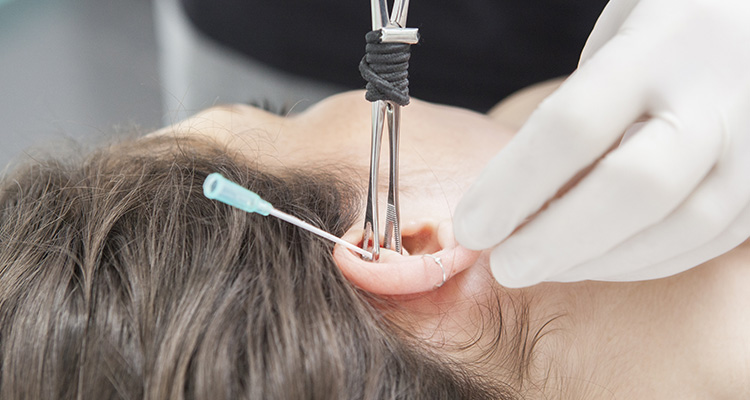
Thinking about getting a new piercing?
When you are going to get a new piercing, you might want to use a piercing ring as your first piercing. Always consult with your piercing artist first. A ring is not always the best piercing type for the healing period.
If you are looking for more information about getting pierced, we recommend checking out our piercing guides.














